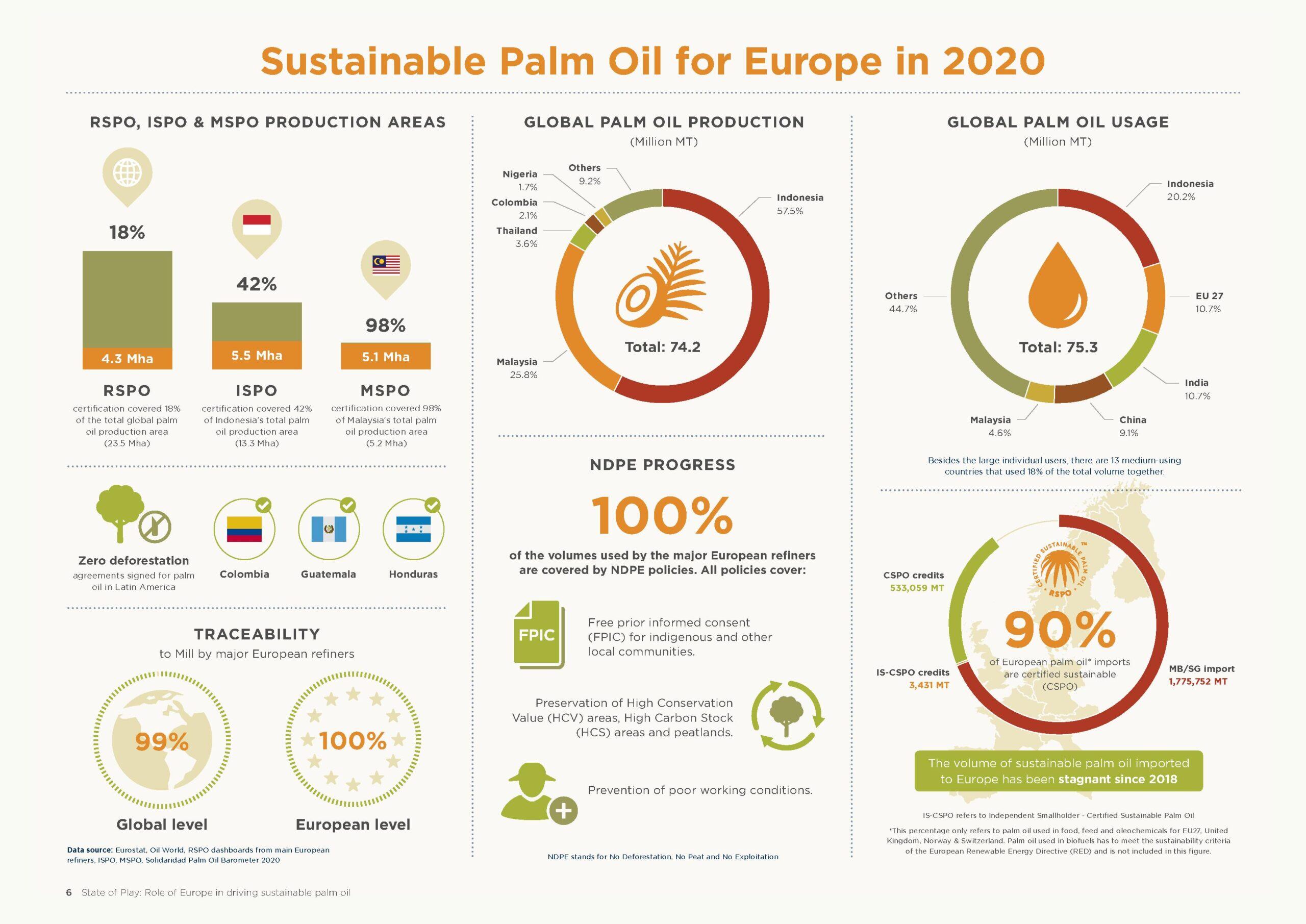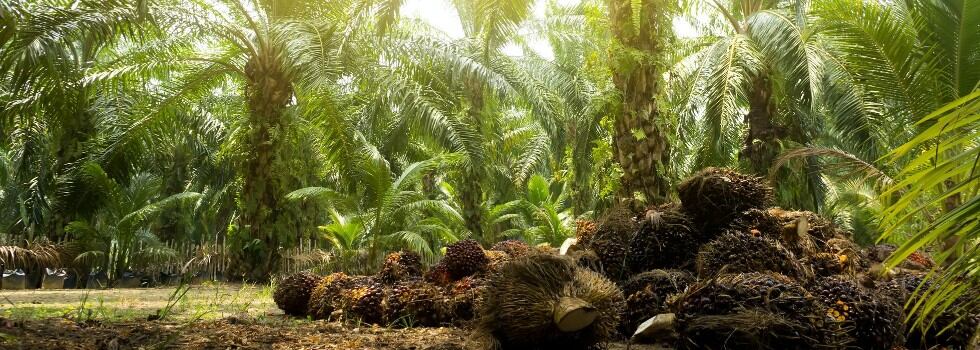While global deforestation rates increase at an alarming rate, progress in Southeast Asia offers a bright spot. According to Chain Reaction Research, palm oil driven deforestation in Indonesia, Malaysia and Papua New Guinea ‘has fallen to its lowest level since 2017’. This downward trend has even persisted despite the high prices for palm oil, a commodity often linked to deforestation in Southeast Asia.
Factors that contribute
Since 2017, the World Resources Institute has been reporting declining numbers in primary forest loss in Indonesia and Malaysia. In 2020, both countries accounted for 83.3% of the global production of palm oil in Southeast Asia. Experts mention different factors that have played a vital role in the decline of the deforestation rates, including: strengthened law enforcement to prevent forest fires and land clearing, moratoria on forest and peatland conversion, No Deforestation, No Peat and No exploitation (NDPE) policies from companies, (national) certification schemes, and civil society organization and activist campaigns for deforestation-free palm oil.
Sector transformation
Consumer markets like Europe have also increased their demand for deforestation-free palm oil. In 2020, 90% of the palm oil entering Europe for food, feed, and oleochemicals was sustainably certified under the Roundtable On Sustainable Palm Oil (RSPO). This multi-stakeholder initiative has developed a set of environmental and social criteria, which companies must comply with in order to produce Certified Sustainable Palm Oil (CSPO). Next to the international voluntary schemes, Indonesia and Malaysia have introduced national schemes with sustainability standards for the production of palm oil.
National certification schemes
The downward trend in primary forest loss in Indonesia and Malaysia has coincided with the implementation of various sustainability initiatives, such as the Indonesian Sustainable Palm Oil Standard (ISPO) and the Malaysian Sustainable Palm Oil Standard (MSPO), which require environmental impact assessments for plantations and environmental management plans as prerequisites for renewal of licenses and permits. ISPO standards are based on existing Indonesian legislations mandating all oil palm growers to adhere to higher agricultural standards for advancing the sustainability and the competitiveness of the industry. It also requires the implementation of Good Agricultural Practices, covering the reduction of greenhouse gas emissions. The MSPO is a national certification standard, aligning the management of palm oil production with Malaysian laws and regulations. MSPO covers almost all Malaysian palm oil production and helps small and medium cultivators to operate sustainably, complementing industry-initiated standards certification. Amongst others, important requirements are: to identify high biodiversity value defined as primary forest, no planting on land with high biodiversity value, and no conversion of Environmentally Sensitive Areas (ESAs). In 2020, ISPO certification covered 42% of Indonesia’s 13.3 million ha palm oil production area, while MSPO certification covered 98% of Malaysia’s 5.2 million ha palm oil production area.

A role to play
While the principles and criteria of both standards are differently structured, they cover similar sets of general themes: legality, environmental responsibilities, social responsibilities and business practices. Both schemes use national existing laws and regulations to enforce the standards on companies with corresponding penalties or marketing sanctions. ISPO and MSPO are schemes that exist alongside international voluntary schemes such as RSPO, ISCC, and IPOS. In addition, ISPO and MPSO are included in the Global Framework of Principles for Sustainable Palm Oil (GFP-SPO), which has been launched by the Council of Palm Oil Producing Countries (CPOPC). This framework aims to create a common language across the different certification schemes used in the palm oil sector with the United Nations’ Sustainable Development Goals as its benchmark.
Impact on the ground
National standards are an important vehicle for medium and small-scale producers to become part of the sustainable transformation of palm oil production. They play an important role in ensuring a country-wide level playing field. In addition, they can complement other sustainability initiatives, such as international schemes and government regulation, together creating impact on the ground at many different levels.
Webinar
To discuss and better understand the role of ISPO and MSPO and how they can contribute to reducing palm oil-related deforestation in Indonesia and Malaysia, the Sustainable Palm Oil Choice (SPOC) organizes a webinar on 21 April 2022. The webinar investigates the current state of play with respect to deforestation in Indonesia and Malaysia for palm oil, and aims to create clarity on the exact requirements and enforcement mechanisms in place. It would like to provide a better understanding amongst participants of the role that national schemes play and how they fit in the larger set of approaches, including voluntary certification schemes, regulations in importing countries, landscape approaches, and country partnerships and what can be done to help drive implementation and effectiveness of national standards from a European perspective.
In Europe, we recognize the importance of cooperating with and supporting palm oil producing countries. EPOA and SPOC strongly advocate a constructive dialogue among stakeholders, more wide-ranging cooperation, and acknowledgement of the contribution of each partner and instrument in the sustainability journey of the palm oil sector.



